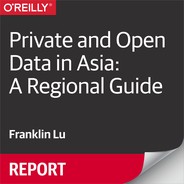Chapter 6. Indonesia
Indonesia is at the bottom of the list of these five Asian countries in terms of Internet users. Although home to more people than Korea and Japan combinded, Indonesia also has a far lower Internet penetration than both these countries (around 20%). Nevertheless, Indonesia’s economic power makes it an important player, rivaling India in terms of growth.
Article 28G of the Indonesian Constitution reads as follows: “Every person shall have the right to protection of his/herself, family, honour, dignity, and property, and shall have the right to feel secure against and receive protection from the threat of fear to do or not do something that is a human right.” Included in the interpretation of Article 28G is the right to privacy, which may be further interpreted to include the right to data privacy. While the Constitution loosely guarantees a right to data privacy, data privacy law in Indonesia is not very strict. The Law on Information and Electronic Transaction, or IET, describes the proper guidelines for electronic transactions. Specifically, Article 26 of the IET requires that consent be given for the collection of personal information electronically. However, the details of the enforcement and the scope of the IET remain to be further described by the Indonesian government. With Government Regulation No. 82, enacted in 2012, Indonesia attempted to outline a more definite stance with regards to data privacy. Regulation 82 defines personal data as any data specific to an individual that is to be stored, treated, maintained, and kept confidential. In many ways, Regulation 82 is more sophisticated than comparable laws in other countries: it covers service-level agreements between companies and requires providers to provide source code to their customers or to third-party escrow agents. It further enumerates proper practices for data controllers, which include maintaining confidentiality, obtaining consent before collecting data, proper use of the data, notifying the owners of the data in case of a breach, and upholding proper security practices. Nevertheless, the enforcement of law remains ill defined.
Indonesia, unlike China, has a perhaps surprising affinity for open data. For example, Indonesia is the only other East Asian country besides South Korea that is a part of the Open Government Partnership. As a developing country, Indonesia has a strong focus on open data for the sake of government and corporate transparency. The Swandiri Institute, for example, uses (and advocates for) open data for environmental sustainability and anti-corruption efforts. Jakarta itself is a hub for open data, with events such as HackJakarta drawing together a strong community of open data enthusiasts.
Regulation 82 shows Indonesia’s second-mover advantage, clarifying relationships that other legal frameworks have avoided (or left to contract law), but the developing state of Indonesia’s economy leaves much up in the air—whether power structures will favor government, established companies, or citizens, in particular. The swift adoption of mobile phones and growing middle class population may portend unforeseen models for data sharing and provisioning; in any case, the Indonesian market for data services is a wide open playing field.
